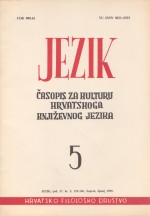
IV. jugoslavenska konferencija o leksikografiji i leksikologiji
Review of the Conference: IV Yugoslav Conference on Lexicography and Lexicology (Branka Tafra)
More...We kindly inform you that, as long as the subject affiliation of our 300.000+ articles is in progress, you might get unsufficient or no results on your third level or second level search. In this case, please broaden your search criteria.

Review of the Conference: IV Yugoslav Conference on Lexicography and Lexicology (Branka Tafra)
More...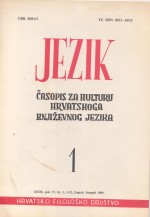
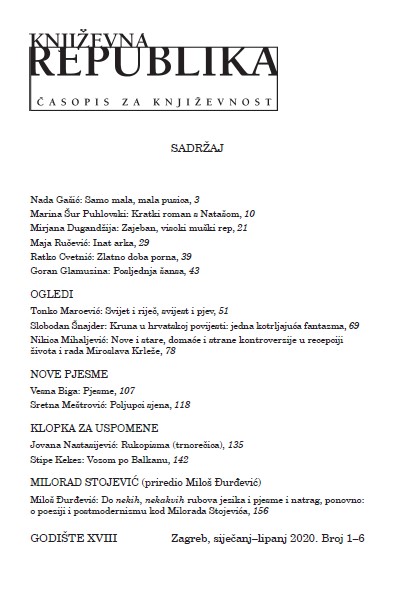
Osječka teatrologinja Sanja Nikčević (1960.) načinila je pregled, svojevrsnu inventuru, podataka i činjenica koje bi trebale pokazati kakav je bio odnos nove hrvatske vlasti, pojedinih politika i pojedinaca prema liku i djelu Miroslava Krleže (1893.–1981.) u razdoblju od 1991. do 2013. U nekoliko varijanata svoga teksta, od 2014. pa do 2016. ona je, ponešto mijenjajući stajališta i ocjene, podastrla faktografske i statističke rezultate koji, tobože, bjelodano dokazuju da je odnos nove hrvatske vlasti, u samostalnoj Hrvatskoj, bio dobrohotan, štoviše, stječe se dojam da autorica doista tako i misli, i više nego zadovoljavajući prema Krleži.
More...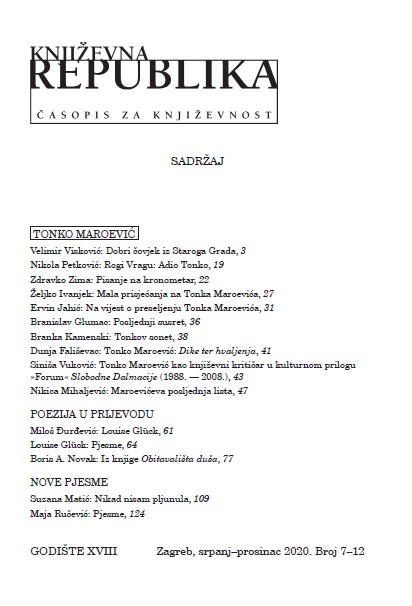
Tonko me oduvijek fascinirao jednom svojom ljudskom osobinom: odsustvom zloće. Kod literata to je iznimno rijetka pojava; zloća u raznim pojavnim oblicima (najčešće zavisti i ljubomore, ali i drugih svakovrsnih osporavanja takmaca u borbi za prestiž) među piscima je iznimno razvijena, a budući da su najčešće vrlo maštoviti već i po prirodi profesije kojom se bave, može poprimiti čudovišne oblike. Pred takvima neke ljude ne smiješ ni spomenuti; svima je javno poznata nesnošljivost, koja je prerasla i u legendu, recimo, Krleže i Ujevića.
More...
Review of: DAMIR RADIĆ - Postmodernistički roman, (Igor Štiks: W. Fraktura, Zaprešić, 2019.) DAMIR RADIĆ - Čežnja za roditeljstvom (Marko Gregur: Mogla bi se zvati Leda. Hena com, Zagreb, 2018.) DAMIR RADIĆ - Tjeskoba i grozničavost postojanja (Marko Tomaš: Nemoj me buditi. VB Z, Zagreb, 2019.) NIKICA MIHALJEVIĆ - Nebeski vodič (Jasminka Domaš: Kadišl i nebeski putnici. Litteris, Zagreb, 2020.) JOVANA NASTASIJEVIĆ - Ispisati (ne)prisustvo (Nada Topić: Otac. Vlastita naklada, Solin, 2019.) NIKICA MIHALJEVIĆ - Knjiga smutnje (Dnevnički zapisi Alojzija Stepinca 1934.–1945. iz arhiva UDBA–e, priredio dr. sc. Željko Karaula. Despot infinitus, Zagreb, 2020.)
More...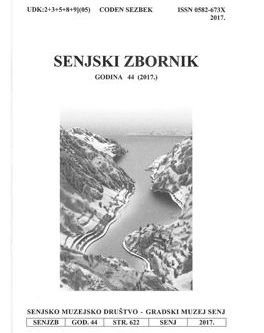
The paper analyses the methods of literary articulation of Podgorje in the narrative prose of Vjenceslav Novak (Pavao Šegota, Pod Nehajem, Posljednji Stipančići, Tito Dorčić, Dva svijeta). Podgorje was not noted as an idealised home region on the edge of the Austrian Empire, but was transformed into a poetic tool of the questioning of the personal and collective identity of the participants of this region, whose marginal position is also considered as a consequence of the conflicting and non-existent parts of Croatian individuality. A move in the analysis of the place of the story from the centre to the edge, as well as the transitions between the semantic fields of the metropolis and the provinces, make up a narrative creation with which Novak enriches his realist poetics, depicting the dimensions of political and class transitions in the separated,tucked away Croatian place, a subject outside of central European literary production. With his fictional configuration of the area, Novak aligns the division at the centre and periphery resulting from the distribution of the political and economic powers of 19th century Europe, as well as a valuable dividing line. Doubts about the affiliation of the original landscape make up a narrative structure of a European realist novel at the turn of the 19th-20th centuries. The narrative topography of Vjenceslav Novak extends the Croatian environment to the landscape of a smaller littoral town and the Podvelebit coast whose original extensibility and diversity add meanings developed from the tension in the interpretation of the relationship of a centre and a province. Novak’s narrative excursions about the features of Podgorje are interwoven with the common references of the geopolitical idea of a European province, which are distributed over this peripheral area.
More...
Review of: Petar Vuković - Petra Košutar i Mislav Kovačić (ur.). Od dvojbe do razdvojbe. Zbornik radova u čast profesorici Branki Tafri. Zagreb, Ibis grafika, 2018
More...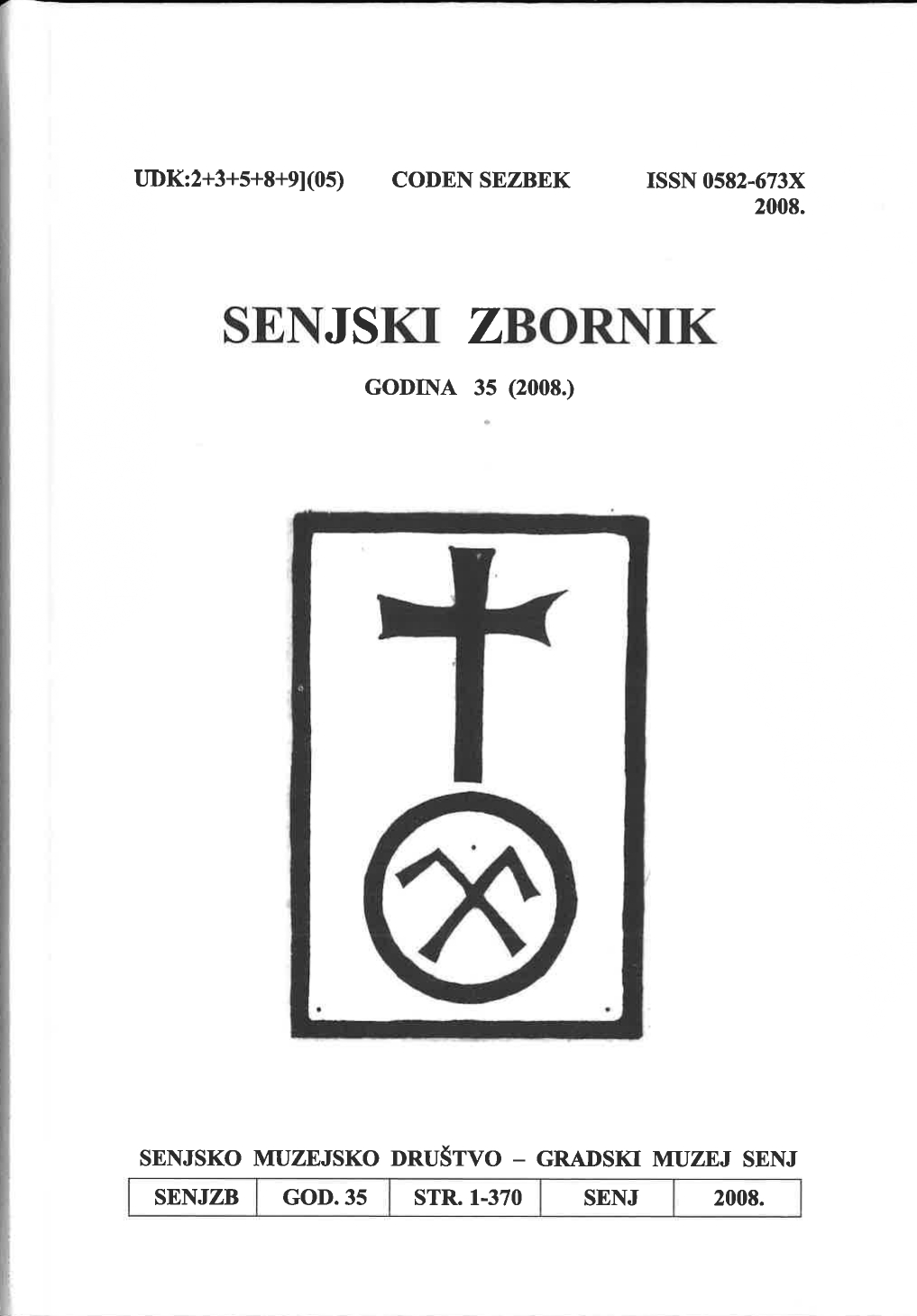
The preserved exempla in glagolitic literature represent an exceptional and little known fragment of the whole, very rich medieval European exempla literary tradition (J. Th. WELTER, 1927). The exempla in the Senjski korizmenjak (Lent Book) belong to the translation of Quaresimale in volgare, of the Franciscan brother Roberto Caraccioli (1425-1495) from Lecce. The Senj exempla reflect Caraccili’s directions of unifying of oral and written literal expression with the Croatian language and glagolitic alphabet dedicated to laics and priests in a popular, interesting and memorable way which supported popular sanctity as well as everyday ethic and communicative relationship between preacher and believers. Of 19 exempla in the Korizmenjak which we transliterated according to systemised norms and we especially concentrated on the 13th which is known in every western European collection of exempla under the title of Ungrateful Son. Our thoughts we concentrated on appearance of the frog and its role and symbolism which it brings to this story.
More...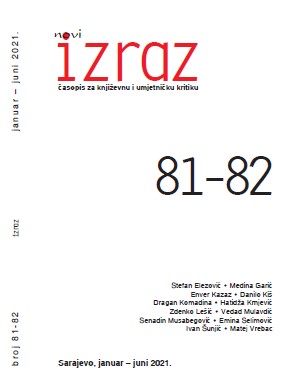
Od ponuđenih desetak tekstova koje mi je poslala redakcija s molbom da između njih odaberem tri koja bi mogla biti reprezentativna slika kritike koja se objavljivala u starom, Begićevom Izrazu, odlučio sam se za tekstove Hatidže Krnjević “Đerzelez Alija između epskog trijumfa i ljudskog poraza”, Zdenka Lešića “Poezija Gustava Krkleca” i Danila Kiša “Verlen ili o muzici, jedan problem uporedne estetike”.
More...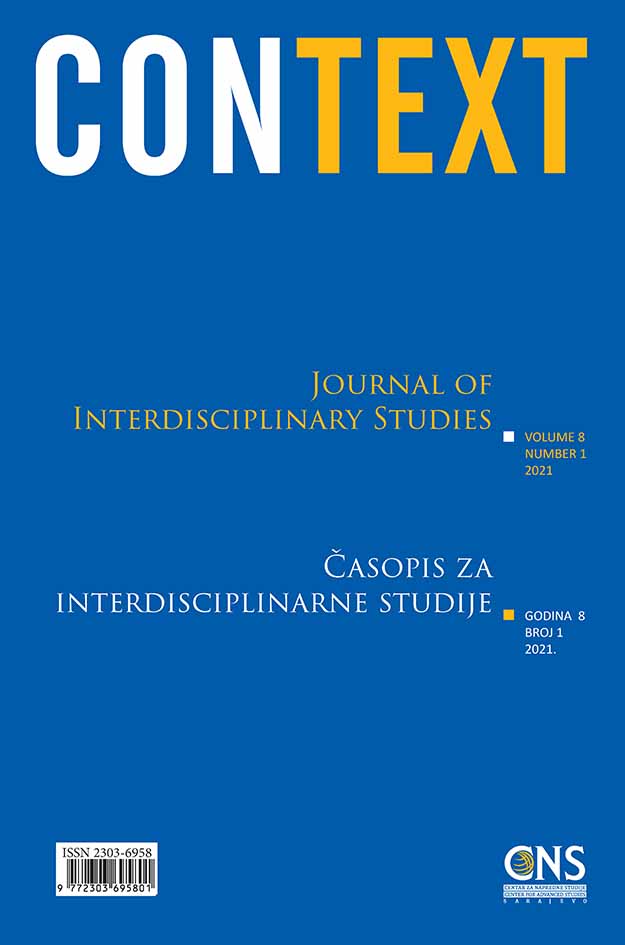
This article explores various questions about a poem written by Antun Ivanošić (1740–1800), a priest and poet from Slavonia, in which he glorifies the Habsburg victory over “the Turks” during the Dubica War (1788–1791). The author twice mentinos Mustafa Gaibija (Muṣṭafā Ghāʼibī or Ghaybī), a 17th century Muslim scholar, mystic and poet. Gaibija holds an important place in the sacral history of the Banja Luka region and of the Bosnian Muslims in general. His memory is also preserved in the folk traditions of the Catholics of Slavonia. The references to Gaibija in Ivanošić’s poem have previously passed unnoticed both in both Bosnian historiography and Croatian literary studies. This article highlights the significance of these references and thus contributes to a better understanding of Christian-Muslim relations on the borders of empires and to the representation of Muslims among the Southern Slavs of the 18th century.
More...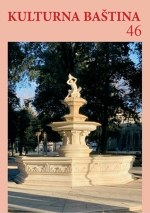
The Vojnović family originated in Popovo Polje in Herzegovina. According to some historical sources, Prince Jovan Vujov Vojnović moved to Herceg Novi in around 1690, which was then under the Venetian rule. In the 1770s, Venice recognized the families of noble origin, as well as their coats of arms, and awarded them the title of prince. It was due to this exact recognition, which was also confirmed by Austria, that the family members used the title of the Užice Princes, since the city of Užice was in the possession of the Vojnović family. The Vojnovićs were prominent naval officers, lawyers, politicians and writers. At the turn of the 19th and 20th centuries, a significant mark in the political and cultural sphere was made by Konstantin Vojnović and his two sons, Ivo and Lujo. Ivo Vojnović was born in Dubrovnik on October 9, 1856. He attended the classical grammar school in Split and Zagreb, where he graduated in 1875, and then received his doctorate in law in 1879. In the period from 1883 to September 1903, he worked as a bailiff at the District Court in Križevci, then he was the court reporter at the Governorship in Zadar. He also served as a commissary at the Dubrovnik District Authority, an administrator at the Supetar District Authority and, finally, a secretary at the Zadar Governorship. In the period October 1903 – spring 1907, he once again held the position of a district administrator, but due to an accounting scandal, he was dismissed from the civil service without the right to a pension. In the same year, on June 13, he was appointed playwright of the Croatian National Theatre in Zagreb. In 1911, as he failed to renew his contract with Vladimir Treščec-Branjski, who was a theatre manager then, I. Vojnović decided to become a professional writer. The sudden death of his sister Katica in 1928 caused him severe emotional distress. As he had been seriously ill prior to her death, he decided to spend a certain amount of time at Zagreb sanatorium. Since the prospects of his recovery were rather slim, he accepted the invitation of the noble family Gavrilović Glučić to be a guest in their villa on the Topčidar Hill. He was soon admitted for the treatment at the sanatorium of Dr Zivković in 57 Krunska Street in Belgrade. He died there on August 30, 1929. He appeared in literature as early as 1880, when August Šenoa, then editor of Vijenac, published his short story Geranium. This was followed by the publication of a short story and a novel – Perom i olovkom and Ksanta. His debut play Psyche in 1889 marked a turning point in both the Croatian theatre and literature and provided him with the attribute of the pioneer of modern drama who managed to introduce Croatian dramaturgy into then current trends of the European drama production. In the personal archives of Ante Tresić Pavičić (Vrbanj on Hvar 1869 - Split 1949), which is kept in the State Archives in Split, there is correspondence containing a total of 937 letters; there are 6 postcards, 2 business cards, 1 telegram and 22 letters by Ivo Vojnović covering the period from 1907 to 1912. The letters had a private character, although some were written on the headed notepaper that belonged to the management of the Croatian theatre in Zagreb. In those letters, Vojnović presented and described various events and in connection with them his thoughts, feelings and hopes. He often inserted proverbs in Italian, French and German. In the letters, Vojnović addressed Ante Tresić Pavičić with: dear doctor, dear Tresić, dear friend, my dear friend. He ended them in the following manner: with the most cordial greetings, trust your loyal friend, greetings from yours, from the bottom of my heart, your loyal friend, may God follow you on your path, hugging you I remain yours, etc. According to their content, the letters are divided into five categories: 1 District administrator in Supetar (1907) 2 Playwright at the Croatian National Theatre in Zagreb and dismissal (1908 / 1910; specified year n/a) 3 Playwright at the Croatian National Theatre in Zagreb (1908 /1910) 4 Dismissal from the civil service (1908 / 1910; specified date and year n/a) 5 Professional writer (1912) Although there is a large number of critical reviews of Ivo Vojnović’s literary work, little is known of his emotional state and life that ensued when he, at the age of fifty-two and after twenty-five years of respectable literary career, was dismissed without the right to a pension, due to an accounting scandal. Therefore, the letters to Ante Tresić Pavičić, who was a representative at the Imperial Council and the only true friend, represent an invaluable source of information about both Ivo Vojnović and the environment in which this acclaimed artist lived and worked.
More...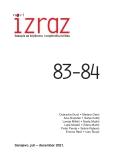
Based on the novel Putovanje započeto od kraja by Zulmir Bečević, the article aims to demonstrate how the thematic complexity encompassing growing up, undesired travelling, leaving home and searching for an identity of which the adult characters are not deprived, becomes transformed through narrative memories into a hybrid text, which goes beyond the common division of literature into children’s and adult books. The article shows how the narrator succeeds in interweaving the story containing a refugee trauma told from a child’s perspective with the world of adults, while not undermining the structure of the text and thematic orientation towards all readers’ groups.
More...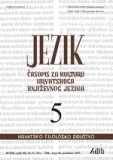
Ove se godine obilježuje 50. obljetnica Hrvatskoga proljeća. Prigoda je to prisjetiti se glasovitoga članka Izlazak iz genitiva ili drugi hrvatski preporod, koji je u časopisu Kritika Matice hrvatske objavila 1971. Smiljana Rendić, publicistica i prevoditeljica, prvakinja hrvatskoga katoličkoga novinstva.
More...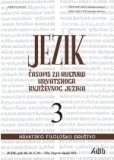
The article discusses the contribution that the journalist, lexicographer and publicist Josip Šentija gave to the affirmation of the Croatian literary language by supporting the Declaration on the Name and Status of the Croatian Literary Language and by defending it against unitary linguistic and political attacks. It further discusses the suppression of the attempted Serbian language colonization of Radio Zagreb; the harvesting of the first postdeclaration fruits manifested in the amended language articles in the 1974 constitutions of Yugoslav republics; the implementation of Art. 138 of the Constitution of the Socialist Republic of Croatia about language in the third edition of the General Encyclopaedia of the Lexicographic Institute, and the cooperation with Miroslav Krleža and the central editorial board in building an encyclopaedic style and nurturing the Croatian language. Finally, the article analyses Šentija’s modern social democratic political orientation and his clear views of national components in the context of the disintegration of Yugoslavia and of the creation of an independent Croatian state, with an emphasis on Croatian-Serbian relations and on Greater Serbian expansionist programme that was partially founded on Karadžić’s motto “Serbs everywhere”, built around the non-scientific premise about the exclusive Serbianness of the Štokavian dialect.
More...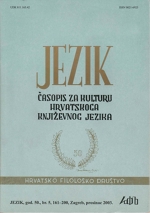
The author presents a major part of the transcript of the discussion "On the problem of language" held on December 16th 1967 in the Central Committee of the League of Communists of Croatia. This was the most important meeting held between Croatian linguists and politicians after the Declaration on the name and position of Croatian Literary Language. This transcript shows part of the difficulties that the Croatian language had to go through until its full affirmation.
More...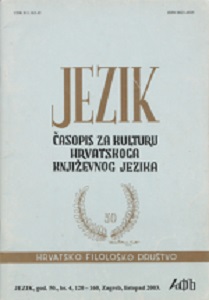
The author presents a major part of the transcript of the discussion "On the problem of language" held on December 16th 1967 in the Central Committee of the League of Communists of Croatia. This was the most important meeting held between Croatian linguists and politicians after the Declaration on the name and position of Croatian Literary Language. This transcript shows part of the difficulties that the Croatian language had to go through until its full affirmation.
More...
Od 9. do 12. svibnja 2002. u Zagrebu je održano VII. državno natjecanje u poznavanju hrvatskoga jezika.
More...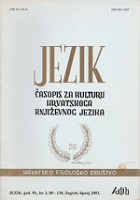
The author presents a major part of the transcript of the discussion "On the problem of language" held on December 16th 1967 in the Central Committee of the League of Communists of Croatia. This was the most important meeting held between Croatian linguists and politicians after the Declaration on the name and position of Croatian Literary Language. This transcript shows part of the difficulties that the Croatian language had to go through until its full affirmation.
More...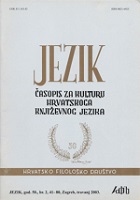
The author presents a major part of the transcript of the discussion "On the problem of language" held on December 16th 1967 in the Central Committee of the League of Communists of Croatia. This was the most important meeting held between Croatian linguists and politicians after the Declaration on the name and position of Croatian Literary Language. This transcript shows part of the difficulties that the Croatian language had to go through until its full affirmation.
More...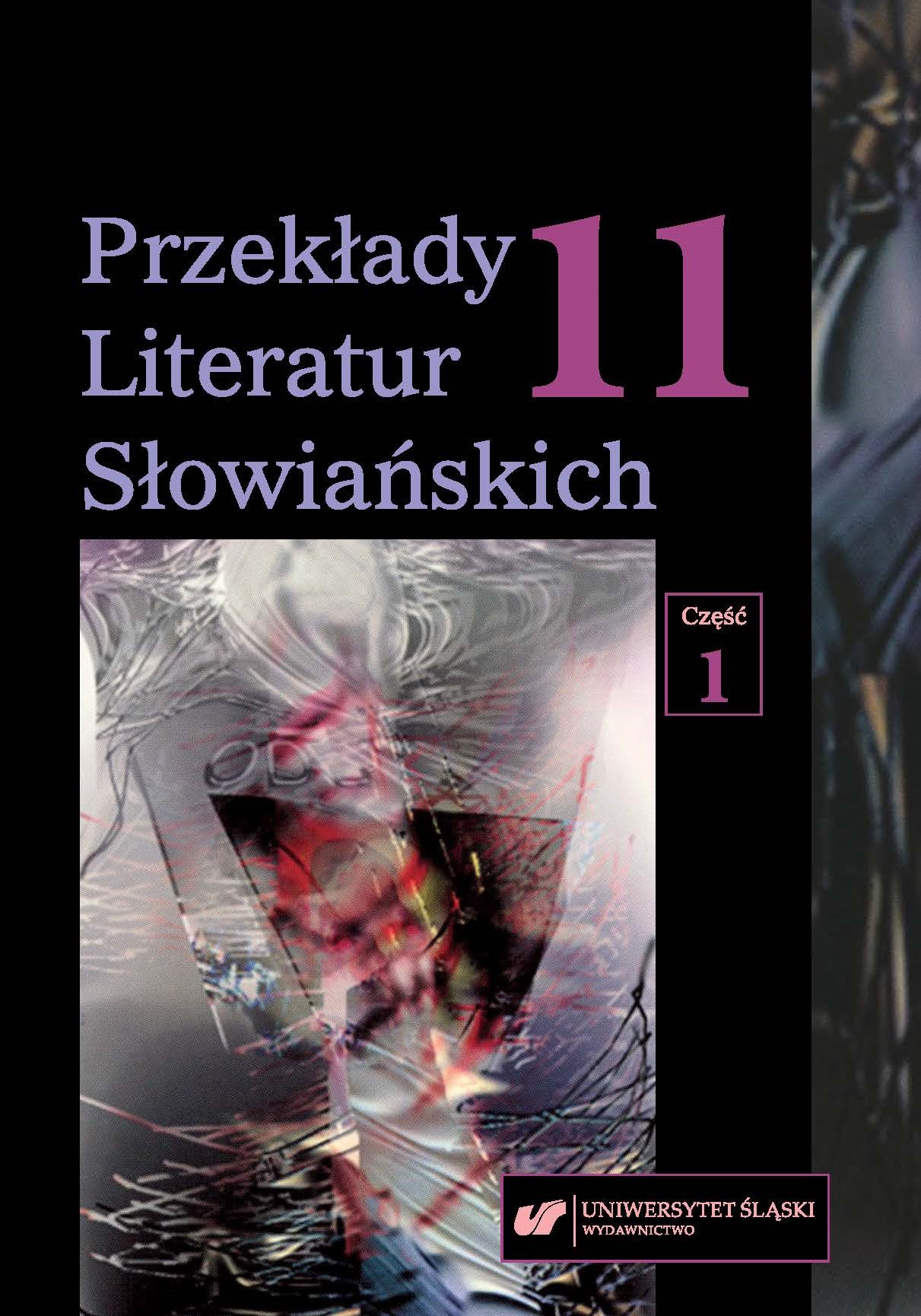
The article deals with the analysis of Italian and Croatian translations of constructivist poems (the “conses”) by Srečko Kosovel, one of the most important Slovene poets. The translations of selected Kosovel’s constructivist poems are analysed by using Andrew Chesterman’s translation strategies. The analysis shows that, for the most part, in Croatian and Italian translations the literal translation strategy prevails, with Italian translations including more frequently other translation possibilities. In general, both translators have strived to preserve the multifaceted aspects of Kosovel’s constructivist poems by adopting a predominantly foreignising translation approach.
More...